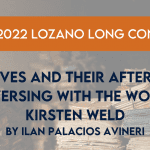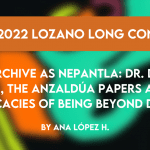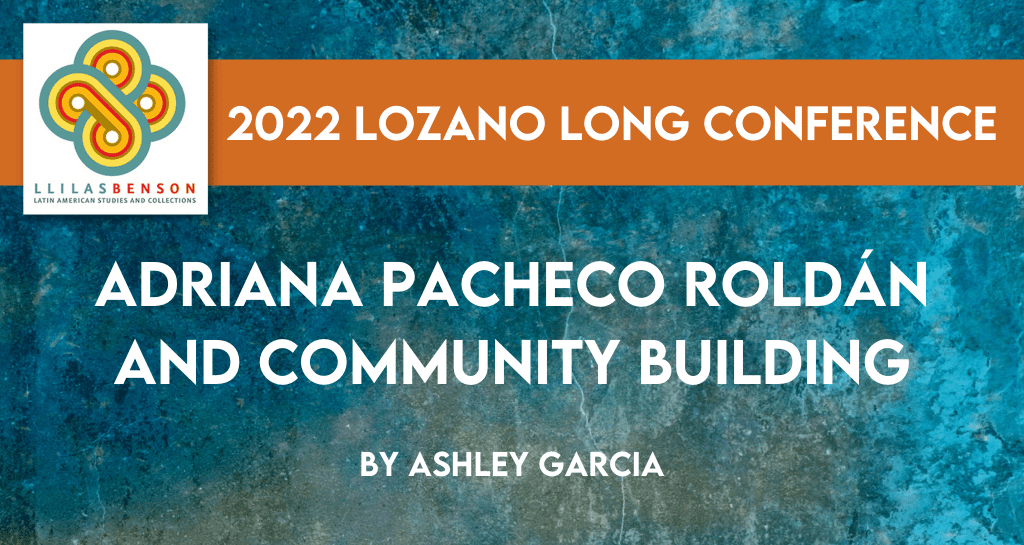
In honor of the centennial of the Nettie Lee Benson Latin American Collection, the 2022 Lozano Long Conference focuses on archives with Latin American perspectives in order to better visualize the ethical and political implications of archival practices globally. The conference was held in February 2022 and the videos of all the presentation will be available soon. Thinking archivally in a time of COVID-19 has also given us an unexpected opportunity to re-imagine the international academic conference. This Not Even Past publication joins those by other graduate students at the University of Texas at Austin. The series as a whole is designed to engage with the work of individual speakers as well as to present valuable resources that will supplement the conference’s recorded presentations. This new conference model, which will make online resources freely and permanently available, seeks to reach audiences beyond conference attendees in the hopes of decolonizing and democratizing access to the production of knowledge. The conference recordings and connected articles can be found here.
En el marco del homenaje al centenario de la Nettie Lee Benson Latin American Collection, la Conferencia Lozano Long 2022 propició un espacio de reflexión sobre archivos latinoamericanos desde un pensamiento latinoamericano con el propósito de entender y conocer las contribuciones de la región a las prácticas archivísticas globales, así como las responsabilidades éticas y políticas que esto implica. Pensar en términos de archivística en tiempos de COVID-19 también nos brindó la imprevista oportunidad de re-imaginar la forma en la que se llevan a cabo conferencias académicas internacionales. Como parte de esta propuesta, esta publicación de Not Even Past se junta a las otras de la serie escritas por estudiantes de posgrado en la Universidad de Texas en Austin. En ellas los estudiantes resaltan el trabajo de las y los panelistas invitados a la conferencia con el objetivo de socializar el material y así descolonizar y democratizar el acceso a la producción de conocimiento. La conferencia tuvo lugar en febrero de 2022 pero todas las presentaciones, así como las grabaciones de los paneles están archivados en YouTube de forma permanente y pronto estarán disponibles las traducciones al inglés y español respectivamente. Las grabaciones de la conferencia y los artículos relacionados se pueden encontrar aquí.
If I had to describe Dr. Adriana Pacheco Roldán’s academic career and contributions with one keyword, it would be comunidad (community). I chose this word for various reasons. To start, the term can be used to describe the digital and academic spaces that Dr. Pahecho Roldán has carved out for people who share similar interests. It also communicates the significance she ascribes to creating such unity. Finally, I also chose comunidad because this is the first word that came to my mind when I discovered Hablemos Escritoras. Dr. Pacheco Roldán will talk more about this project at the 2022 Lozano Long Conference.

Hablemos Escritoras started off as a follow-up project of Dr. Adriana Pacheco Roldán’s series Romper con la palabra. violencia y género en la obra de escritoras mexicanas contemporáneas (2017) (Breaking the silence. Violence and gender in the work of contemporary Mexican writers), but is now the byproduct of a collective of contributors who share similar interests. From a public digital humanities perspective, the site can best be understood as a community built for those who are interested in discovering and connecting with women’s perspectives despite physical borders and time differences. In this digital platform, one can find interviews with Latin American women writers and their translators, the companies and magazines that publish their work, as well as book reviews. This interactive space not only serves as an encyclopedia and as a repository for the curious mind, but it is also a bookstore for those who can’t easily access certain publications through other mediums.
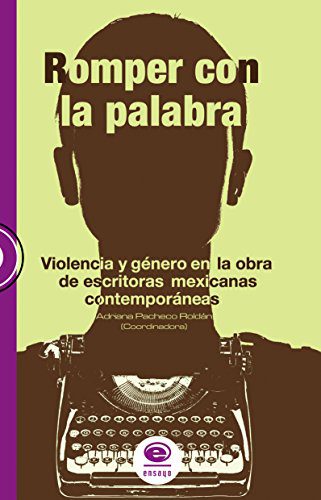
I interpret Hablemos Escritoras as a reflection of the time that Dr. Pacheco Roldán has dedicated to the study of Latin American literature and culture. Dr. Pacheco Roldán completed her bachelor’s degree in Hispanic American Literature at Universidad del Desarrollo del Estado de Puebla and her master’s degree in Iberoamerican literature at the renowned Universidad Iberoamericana. She culminated her Ph.D. at the University of Texas at Austin in 2015. She is an alumna of UT Austin’s Spanish and Portuguese department, where she specialized in Latin American and Iberian Languages and Cultures. Her dissertation, Retórica católica en el siglo XIX en México. De “ángel del hogar” a “ángel viril” (Catholic Discourses in 19th Century Mexico: From ‘“Angel of the home” to “Virile angels”)[1] is the embodiment of her scholarly interest in historiography and the influence of hegemonic discourses (such as politics and religion) on the construction of feminine subjectivity from the 19th century onwards.
I believe that Dr. Pacheco Roldán’s most recent projects demonstrate two things. The first is that her research curiosity and work have evolved. And the second is that developing academic scholarship does not have to be a solitary process. After exploring her CV, I learned that she has collaborated extensively with other scholars––including many women. This is the case with her edited works: Romper con la palabra. violencia y género en la obra de escritoras mexicanas contemporáneas (2017) and Rompiendo de otras maneras. Cineastas, periodistas, dramaturgas y performers (2021). In the first volume, she was joined by Gloria Vergara, Ignacio M. Sánchez Prado, Tarik Torres Mojica, Francesca Dennstedt, and Ada Aurora Sánchez. Together, they analyze works written by contemporary women writers. Further, in the second volume, she brought together Cristina Rivera Garza, Maricruz Castro Ricalde, Gabriela Polit, Fernanda del Monte, Dorte Janzen, Artemisa Téllez. These female cultural studies critics give visibility to women who work in different artistic fields.
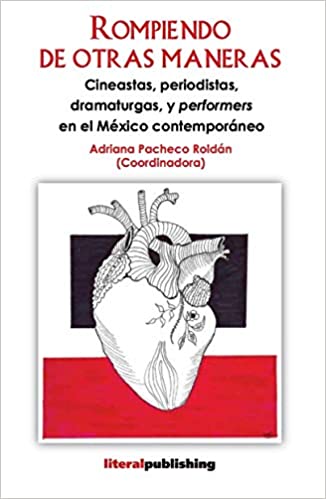
Aside from these enlightening contributions, Dr. Pacheco Roldán has published in both Spanish and English. Her scholarly publications include a contribution for an anthology, two book reviews, and nine journal articles. Her work is not limited to an academic audience. Aside from the aforementioned contributions, Dr. Pacheco Roldán has also published five children’s books, one creative piece, and a total of twenty-two essays in blogs and magazines. Currently, she is working on two books. One of them is titled: “Maternar”. Maternidad y literatura en la obra de escritoras mexicanas and her upcoming book is titled “Virile angels,” much more than “Angels of the home”. Female Education in Mexican 19th Century Catholic Newspapers.
Last but not least, Dr. Pacheco Roldán is someone to look up to when trying to identify how we can build community both within the University of Texas and beyond. In 2015, she and her husband Dr. Fernando Macías Garza made a substantial donation to establish the Benson Centennial Endowment. Aside from serving as a safe keeper of our Latin American culture and heritage here at UT, she has also served as a social advocate for orphaned children in Puebla and rural and low-income communities in Austin. Given this background, I hope that this brief review will encourage you to explore Dr. Pacheco Roldán’s work. I truly believe that her contributions as a scholar, a writer, a community advocate, and as the founder of Hablemos Escritoras serve as an example of the type of work that we as scholars can develop within and outside of academic circles.
Notes:
[1] My translation.
The views and opinions expressed in this article or video are those of the individual author(s) or presenter(s) and do not necessarily reflect the policy or views of the editors at Not Even Past, the UT Department of History, the University of Texas at Austin, or the UT System Board of Regents. Not Even Past is an online public history magazine rather than a peer-reviewed academic journal. While we make efforts to ensure that factual information in articles was obtained from reliable sources, Not Even Past is not responsible for any errors or omissions.


